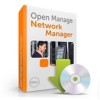Dell OpenManage Network Manager Web Client Guide 5.1 - Page 16
Upgrading from a Previous Version, Supported Operating System Versions, Microsoft Windows, Linux
 |
View all Dell OpenManage Network Manager manuals
Add to My Manuals
Save this manual to your list of manuals |
Page 16 highlights
Generally, base the minimum configuration of any system on its expected peak load. Your installation should spend 95% of its time idle and 5% of its time trying to keep pace with the resource demands. Upgrading from a Previous Version When you upgrade your OpenManage Network Manager installation from a previous version, keep the following in mind: • Upgrading requires a new license to activate new features. • Performance capabilities have been completely reconfigured. When upgrading from previous versions, you must (re-)create dashboards from scratch. • The following require manual migration (export, then import) from previous versions: SMTP settings. Some scheduled items. • You must re-create topologies as Visualizations. (suggestion: take a screenshot) • Group Operations have been deprecated, replaced by Adaptive CLIs. • Command monitors must be recreated, and monitors must be re-configured to monitor Adaptive CLIs that run external scripts. • User Names / Passwords, and User Groups (Roles) are not automatically reassigned and must be created manually. Supported Operating System Versions The following are supported operating system versions: Microsoft Windows-The supported operating systems are: Windows 2003 (Standard,Enterprise and Web) and Windows Server 2008 (including R2 and Enterprise Edition). This is a 64-bit application, it has been tested for Windows on 64-bit operating system versions. NOTE: Windows Terminal Server is not supported. The installer becomes non-responsive with Data Execution Prevention enabled. This option is disabled by default on Windows Server 2008, but is enabled on a Windows Server 2008 machine running Terminal Server. • You must disable User Account Control if you are installing Windows Server 2008. Alternatively, you can run application server as service. Another option is to run as administrator on startappserver. In Vista, right click the startappserver icon and select run as administrator. • Installer may halt when pre-existing bash sessions or cmd sessions are left open. Close all such sessions. Linux-This application supports Red Hat (Enterprise version 5.5 or 6.0) Linux, 64-bit only. (See 32-bit Linux Libraries on page 18 for additional requirements) CAUTION: For Linux, you must install no more than a single instance of MySQL-the one installed with this software. Before you install, remove any MySQL if it exists on your Linux machine. 16 Overview | Getting Started with Dell OpenManage Network Manager















